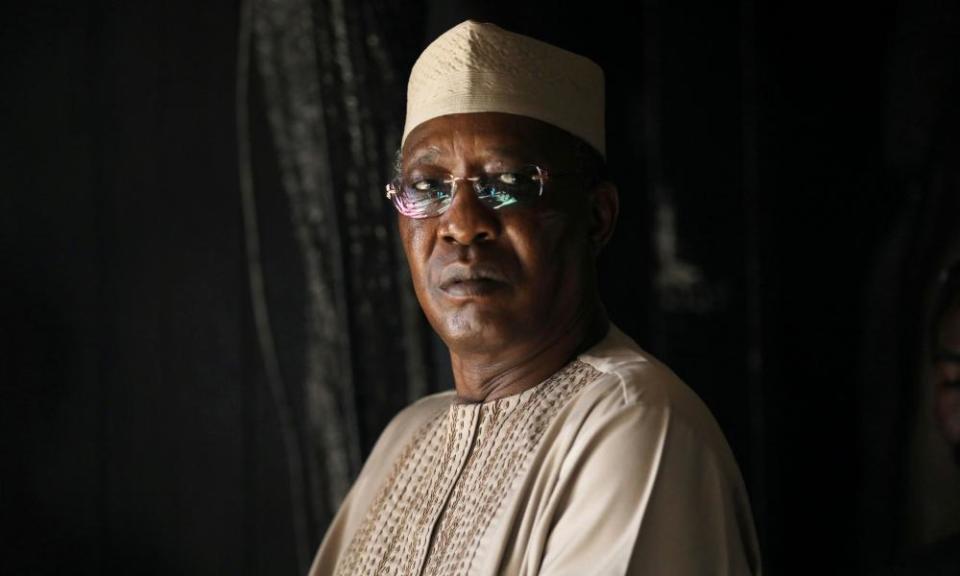Idriss Déby obituary

As president of Chad for 30 years, Idriss Déby, who has died aged 68, was everything a leader should not be. Corrupt, opportunistic and glory-driven, he dominated Chad for more than half its tumultuous 61 years since independence in 1960, leaving behind him an impoverished country.
Beginning in 1990 when his guerrilla force, swathed in desert headgear, marched into the capital, N’Djamena, from neighbouring Sudan’s Darfur region – completing the overthrow of his then boss and mentor Hissène Habré, who had ruled Chad from 1982 – Déby wielded power like an emperor, controlling every aspect of the country.
To win international acceptance he abolished Habré’s single-party system and began organising regular multiparty elections. But only he could win the presidency, and only his guerrilla army, the Patriotic Salvation Movement, which morphed into a political party, could be elected to parliament.
Similarly, Déby allowed the press to print freely so long as he was not criticised. Everything else remained as it was under Habré. He changed the constitution twice to allow himself to stay in power until 2033 and he squandered Chad’s wealth. According to the US justice department, Déby personally received huge bribes from foreign investors, including $2m from a Chinese-owned energy company.
His kleptocracy was perhaps best known for its nepotism. Of his many known children, Déby made five into army generals and raised another six to the rank of army colonel. He appointed a further nine to Chad’s most sensitive and lucrative portfolios, including intelligence chief, and made his eldest brother, Daoussa Déby Itno, minister of post; the youngest of his male siblings, Saleh, was Chad’s customs chief. His nephew, Ahmat Youssouf Itno, held the job of head of military intelligence.
The first lady, Hinda Acyl, who was one of his eight known wives, served as his private secretary – a role his late son Brahim Déby had held before her. Hinda’s nine brothers and sisters also had influential roles in Chad, including Khoudar Mahamat Acyl as minister of aviation, Ahmat Khazali Acyl as education minister and Mahamat zène Hissein Bourma as chief secretary.
Many of these posts put Déby’s family members close to Chad’s sources of wealth. Its vast deserts cover untapped reserves of uranium and it pumps out 130,000 barrels of oil a day, generating billions of dollars in revenues. Yet Déby squandered those riches by pouring them into his military operations. In a country of 15 million there are just a few hundred qualified doctors, while 70% of Chadians cannot read or write and 80% live on less than a dollar a day.
In spite of this, there was no backlash from the United Nations or from the African Union. In fact, whenever Chadians rose up and attempted to overthrow him – as they did in 2004, 2005, 2006, 2008, 2019, and last month – France, which considered him one of its most loyal allies, intervened, often by sending warplanes.
In return Déby contributed troops to the French-led UN peacekeeping mission in northern Mali, as well as to the tri-border region of Niger, Burkina Faso and Mali, where al-Qaida-linked fighters are expanding their influence. Déby also contributed troops to fight against Nigeria’s Boko Haram militants, establishing himself as a military man for hire in the Sahel region.
Born in Berdoba, a remote north-eastern desert village in what was then French Equatorial Africa, Déby was the son of poor herders who scraped a living from the desert. After attending Qur’anic school in Tiné as a child, he studied at the école Française in Fada, then the Franco-Arab lycée in Abéché and later the lycée Jacques-Moudeïna in Bonghor. After his baccalaureate he joined the army in 1975 and was sent to France, where he qualified as a paratrooper and pilot.
When he returned in 1979, Chad was in the middle of a civil war between the Christian south and Muslim north. He immediately joined Habré, a notorious warlord and fellow northerner. Three years later, in 1982, Habré toppled President Goukouni Oueddei, and as a reward for his support Habré made Déby his deputy army chief. When Habré became an international pariah for ordering the killing of more than 40,000 Chadians (crimes against humanity for which he was convicted in 2016 in Senegal), Déby tried to stage a coup. But it failed, forcing him to go into exile in 1989, and he ended up in Sudan.
With France’s backing, Déby then created the Patriotic Salvation Movement and marched into N’Djamena in 1990. With victory he pledged himself as a fiery apostle of Françafrique (advocating maintaining close ties with France). From his palace in N’Djamena, he leased his army – which was dominated by his Zaghawa tribe – to the highest bidder, fighting wars and conquests for the likes of François Bozizé in neighbouring Central Africa Republic and further afield in the Democratic Republic of Congo. As a result, Déby’s influence far exceeded what might have been expected from the head of state of an arid, landlocked nation.
After Déby’s death during a battle fighting rebel forces near Chad’s sensitive northern border with Libya, the French president, Emmanuel Macron, said France had “lost a brave friend”. However, there was less obvious sentiment in the country of his birth, where Déby’s 37-year-old four-star general son, Mahamat Idriss Déby, launched a coup even before his father was buried, dissolving the government and declaring himself president for the next 18 months in violation of Chad’s constitution.
Déby is survived by at least eight wives, Hadja Halimé, Zina Wazouna Ahmed, Anda Ali Bouye, Souad Zakaria Abdallah, Haoua Toldjei Tchou, Acheick Oumar, Hinda Acyl and Amani Musa Hilal, and at least 24 children.
• Idriss Déby Itino, politician, born 18 June 1952; died 20 April 2021

 Yahoo Finance
Yahoo Finance 